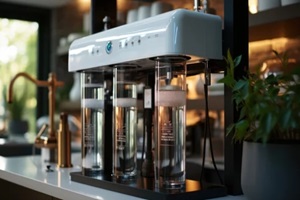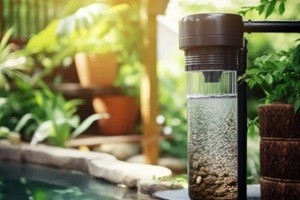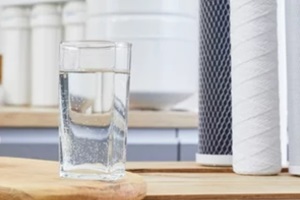 Municipal water in Hawaii is subjected to treatment to meet specific quality standards. However, contaminants, such as bacteria, viruses, or chemicals, can remain in the water supply. In addition, the treatment itself can sometimes introduce other pollutants.
Municipal water in Hawaii is subjected to treatment to meet specific quality standards. However, contaminants, such as bacteria, viruses, or chemicals, can remain in the water supply. In addition, the treatment itself can sometimes introduce other pollutants.
Traditionally, people have relied on bottled water as a solution, but this is costly and unsustainable in the long run. These bottles also contribute to environmental pollution.
A filtration system is a cost-effective solution to ensure safe and clean drinking water. This article will address the cost efficiency of water filtration systems in Hawaii.
Water Quality Challenges in Hawaii
Water supply in Hawaii is typically sourced from underground aquifers. Usually, the state, through the Hawaii State Department of Health and other agencies, imposes strict regulations to ensure drinking water safety.
However, Hawaii’s unique geography makes its water supply vulnerable to contaminants. Its volcanic soil can leach heavy metals such as lead and copper into the groundwater. Also, agricultural runoff and sewage discharge can contaminate water sources.
Water filtration systems provide an economical, efficient, and environmentally friendly solution to this problem. Below are key reasons why filtration systems are an intelligent investment for Hawaii residents.
Benefits of Water Filtration Systems Over Bottled Water
Hawaii residents seeking a cost-effective hydration solution should consider investing in filtration systems instead of relying on bottled water. Here’s why:
Cost Savings Over Time
While the initial cost of installing a filtration system may seem high, it is more cost-effective in the long run. A one-time purchase and system installation can save money that someone would have spent on purchasing bottled water regularly.
Consumers spend significantly more on bottled water compared to the cost of filtering tap water at home, usually 240 to over 10,000 times more per gallon.
As such, the average family can spend $200-$300 per month on bottled water for drinking only. Investing in a reliable water filtration system can save this considerable expense.
 The average family of four uses about 100,000 gallons of tap water per year for all household water needs, including drinking, laundry, cooking, and bathing.
The average family of four uses about 100,000 gallons of tap water per year for all household water needs, including drinking, laundry, cooking, and bathing.
This translates to less than $1,000 annually, while the initial cost of installing a filtration system can be lower than $1,000. This means the initial cost of installing a filtration system can be easily offset in less than a year.
Environmental Impact and Sustainability
Bottles from 39 out of 100 popular water brands contain toxic PFAS (per and poly-fluoroalkyl substances). PFAS are synthetic chemicals that take exceedingly long to disintegrate. Since only about 30% of plastic bottles are recycled, a significant amount is in landfills.
PFAS are among the most harmful substances affecting the environment today. They have been associated with various health risks, such as cancer.
Hawaii residents can reduce plastic waste and protect the environment by investing in a water filtration system.
Improvement in Water Quality and Taste
A four-year study by the Natural Resources Defense Council (NRDC) showed that about 60% of bottled water contains the same contaminants as most tap water. This means consumers end up paying more than they would if they invested in a filtration system but still consume pollutants.
Bottleless filtration systems utilize advanced technology to remove harmful chemicals, bacteria, viruses, and heavy metals from water. This enhances the taste and eliminates disease-causing agents.
Types of Filtration Systems Suitable for Hawaii
There are various types of water filtration systems available to Hawaii residents. The most suitable depends on the level of contaminants in their water supply and budget. The following are the most common:
- Reverse Osmosis (RO) Systems: RO systems use a semipermeable membrane to filter out impurities. They are suitable for removing heavy metals such as lead and copper.
- Ultraviolet (UV) Filters: UV filters are usually recommended for residents using water from untreated sources. These filters kill disease-causing organisms using UV light.
- Deionization: This system uses an ion exchange process to remove minerals and salts from water. It is suitable for areas with high mineral content in their water supply.
These systems also come with optional upgrades to address specific concerns. These include the following:
 An alkaline booster to regulate pH levels
An alkaline booster to regulate pH levels- Natural coconut fibers leach out unpleasant tastes and odors
- Ozone oxygen injectors are usually required for some medical applications.
Work With Hawaiian Cool Water for Cost-Effective and Quality Water Filtration Systems
Hawaii residents should work with an experienced provider to get a competitive, suitable filtration solution for their needs. Hawaiian Cool Water is a locally owned and operated company dedicated to providing superior water purification solutions to Hawaii residents and positively impacting the environment.
Its filtration systems are top-of-the-line with advanced upgrades, including water softening, alkaline balancing, and taste enhancement systems. Contact Hawaiian Cool Water today for cleaner, healthier, and tastier drinking water for household or office use.


